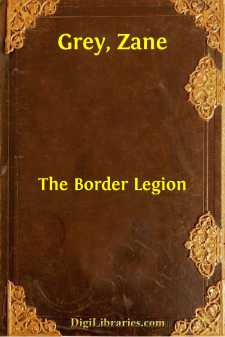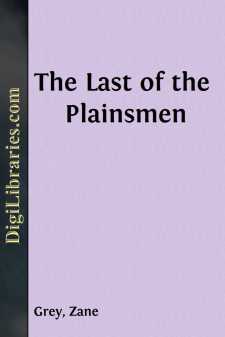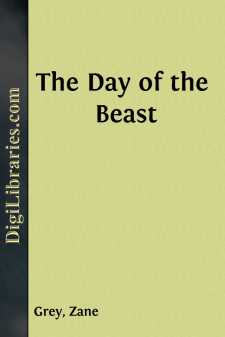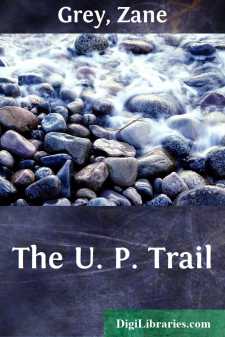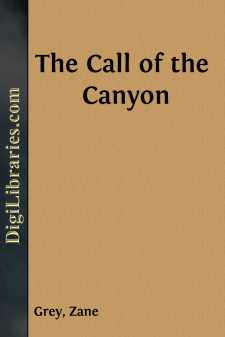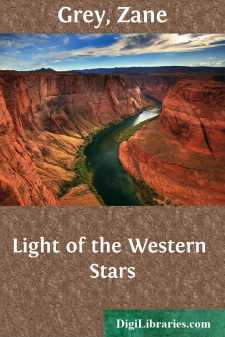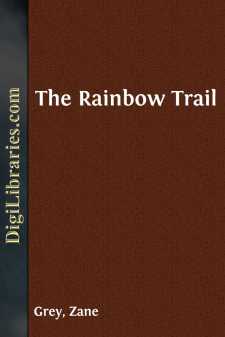Categories
- Antiques & Collectibles 13
- Architecture 36
- Art 48
- Bibles 22
- Biography & Autobiography 813
- Body, Mind & Spirit 142
- Business & Economics 28
- Children's Books 14
- Children's Fiction 11
- Computers 4
- Cooking 94
- Crafts & Hobbies 4
- Drama 346
- Education 46
- Family & Relationships 57
- Fiction 11829
- Games 19
- Gardening 17
- Health & Fitness 34
- History 1377
- House & Home 1
- Humor 147
- Juvenile Fiction 1873
- Juvenile Nonfiction 202
- Language Arts & Disciplines 88
- Law 16
- Literary Collections 686
- Literary Criticism 179
- Mathematics 13
- Medical 41
- Music 40
- Nature 179
- Non-Classifiable 1768
- Performing Arts 7
- Periodicals 1453
- Philosophy 64
- Photography 2
- Poetry 896
- Political Science 203
- Psychology 42
- Reference 154
- Religion 513
- Science 126
- Self-Help 84
- Social Science 81
- Sports & Recreation 34
- Study Aids 3
- Technology & Engineering 59
- Transportation 23
- Travel 463
- True Crime 29
To the Last Man
by: Zane Grey
Description:
Excerpt
FOREWORD
It was inevitable that in my efforts to write romantic history of the great West I should at length come to the story of a feud. For long I have steered clear of this rock. But at last I have reached it and must go over it, driven by my desire to chronicle the stirring events of pioneer days.
Even to-day it is not possible to travel into the remote corners of the West without seeing the lives of people still affected by a fighting past. How can the truth be told about the pioneering of the West if the struggle, the fight, the blood be left out? It cannot be done. How can a novel be stirring and thrilling, as were those times, unless it be full of sensation? My long labors have been devoted to making stories resemble the times they depict. I have loved the West for its vastness, its contrast, its beauty and color and life, for its wildness and violence, and for the fact that I have seen how it developed great men and women who died unknown and unsung.
In this materialistic age, this hard, practical, swift, greedy age of realism, it seems there is no place for writers of romance, no place for romance itself. For many years all the events leading up to the great war were realistic, and the war itself was horribly realistic, and the aftermath is likewise. Romance is only another name for idealism; and I contend that life without ideals is not worth living. Never in the history of the world were ideals needed so terribly as now. Walter Scott wrote romance; so did Victor Hugo; and likewise Kipling, Hawthorne, Stevenson. It was Stevenson, particularly, who wielded a bludgeon against the realists. People live for the dream in their hearts. And I have yet to know anyone who has not some secret dream, some hope, however dim, some storied wall to look at in the dusk, some painted window leading to the soul. How strange indeed to find that the realists have ideals and dreams! To read them one would think their lives held nothing significant. But they love, they hope, they dream, they sacrifice, they struggle on with that dream in their hearts just the same as others. We all are dreamers, if not in the heavy-lidded wasting of time, then in the meaning of life that makes us work on.
It was Wordsworth who wrote, "The world is too much with us"; and if I could give the secret of my ambition as a novelist in a few words it would be contained in that quotation. My inspiration to write has always come from nature. Character and action are subordinated to setting. In all that I have done I have tried to make people see how the world is too much with them. Getting and spending they lay waste their powers, with never a breath of the free and wonderful life of the open!
So I come back to the main point of this foreword, in which I am trying to tell why and how I came to write the story of a feud notorious in Arizona as the Pleasant Valley War.
Some years ago Mr. Harry Adams, a cattleman of Vermajo Park, New Mexico, told me he had been in the Tonto Basin of Arizona and thought I might find interesting material there concerning this Pleasant Valley War....



